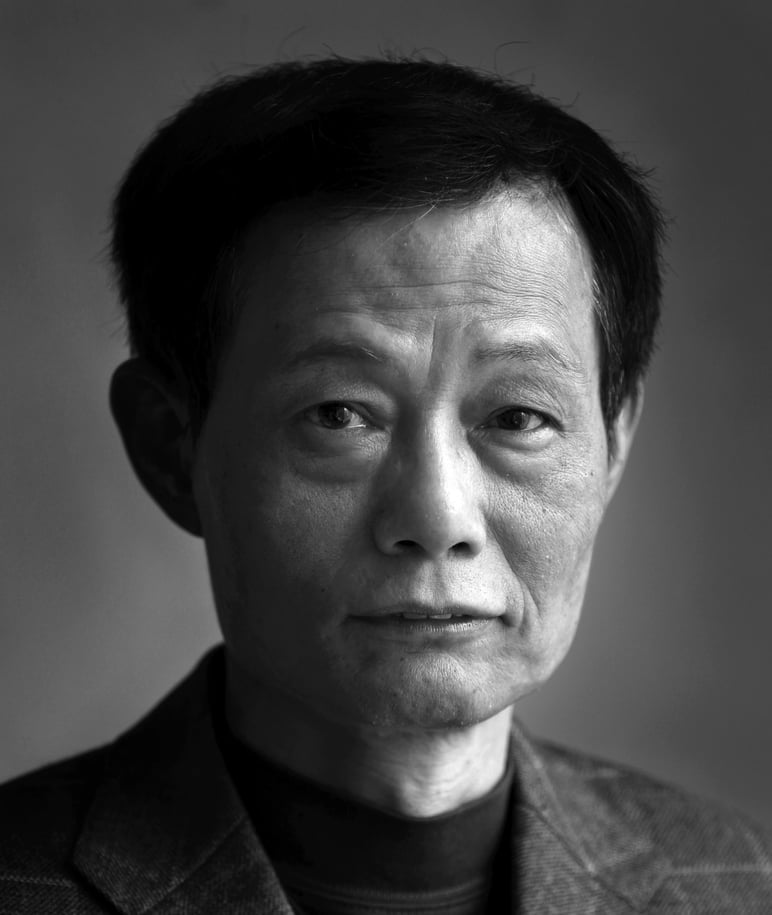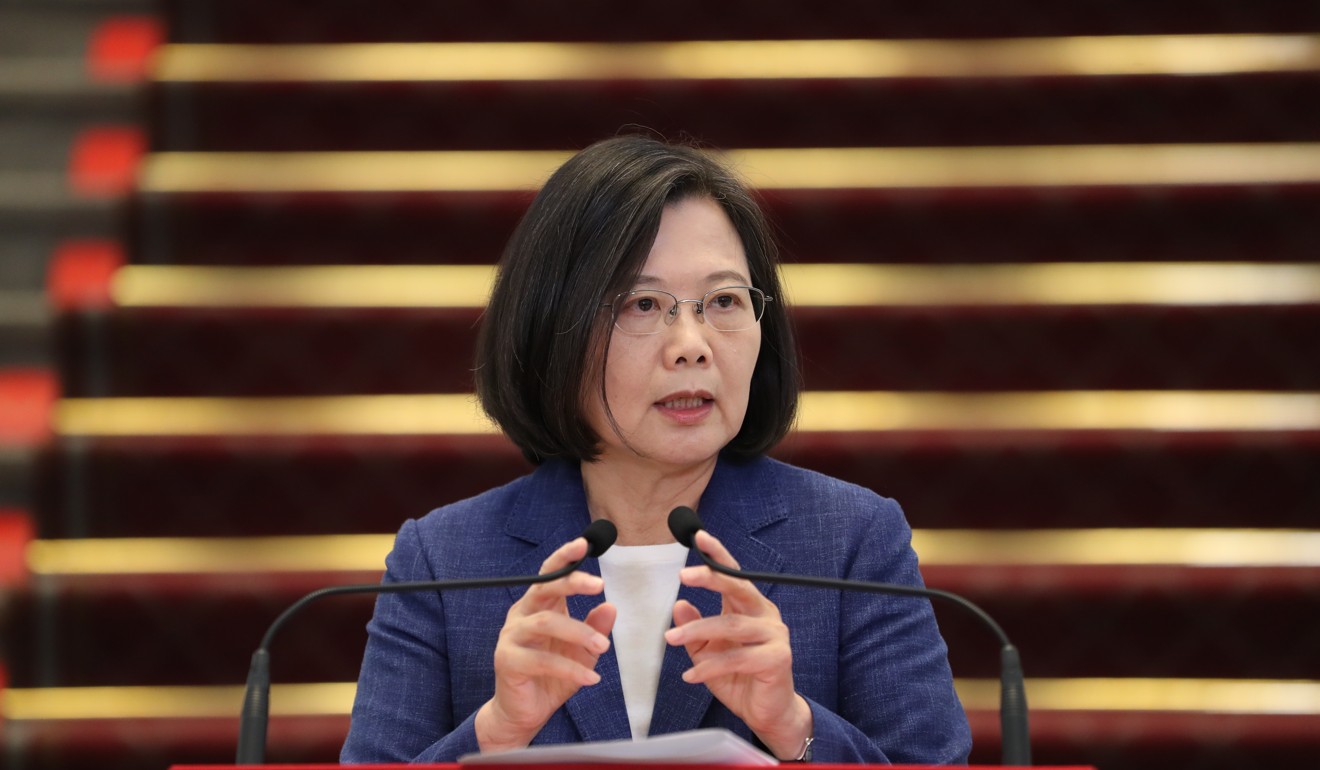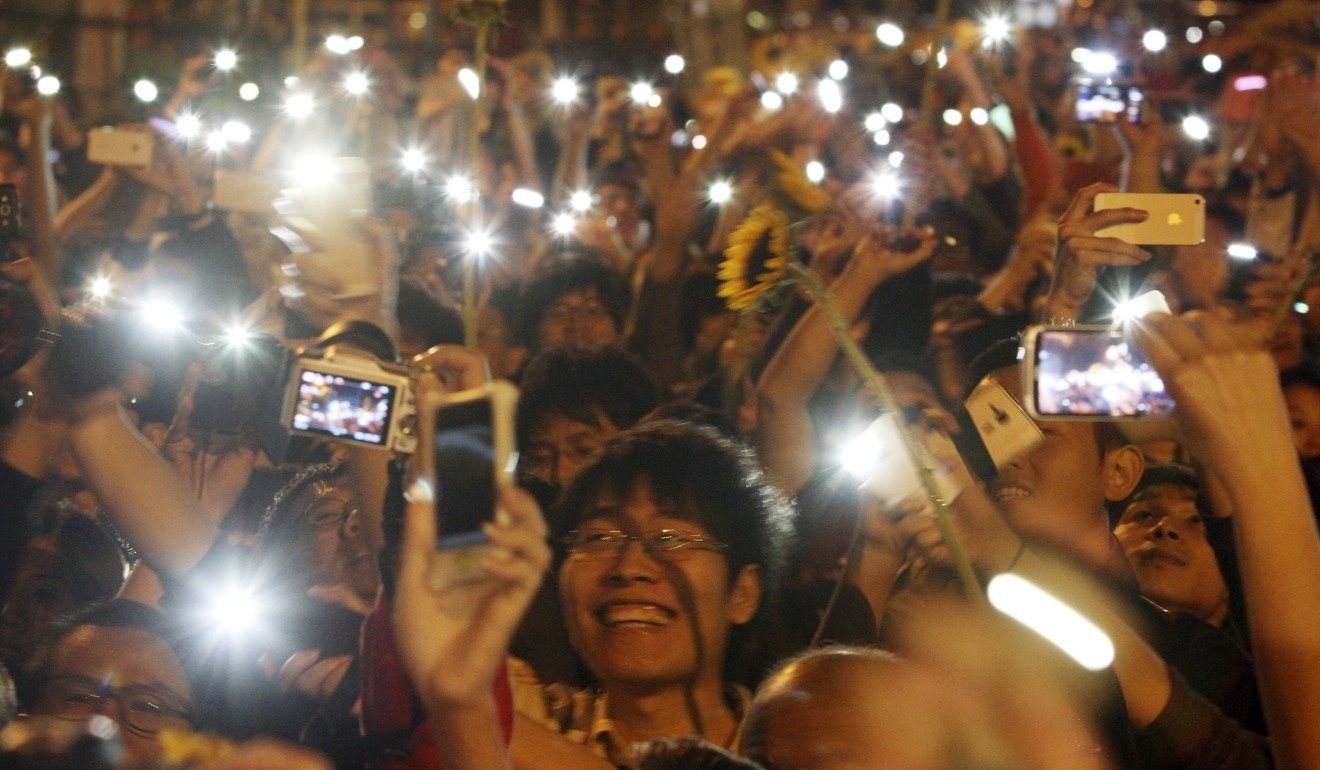
Hong Kong’s extradition protests may have given Taiwan’s president, Tsai Ing-wen, a boost Beijing won’t appreciate
- Tsai Ing-wen’s support for Hongkongers has helped propel her through her party’s primaries and may bode well for her chances in the presidential election
- In the long term, the Hong Kong protests, which vocalise anxieties about China shared by Taiwan, may further alienate Taipei and Beijing
Since Taiwan’s first direct presidential election in 1996, cross-strait relations have dominated debate on the island, while Hong Kong issues have rarely been mentioned.
However, the three massive protests in the past two weeks are all related to Hong Kong’s relations with Beijing. On June 4, 180,000 people attended the annual candlelight vigil in Victoria Park to mark the 30th anniversary of the Tiananmen Square crackdown. Then, over 1 million people took to the streets on June 9 and nearly 2 million came out again on June 16 to protest against the Hong Kong government’s extradition bill, which if passed would allow the transfer of fugitives from Hong Kong to mainland China.
Meanwhile, thousands rallied in Taiwan on Sunday to show solidarity with the Hong Kong protesters. And, on Monday, Taiwan’s legislature passed a joint statement in support of the Hong Kong protesters.
The “one country, two systems” framework was originally designed for Taiwan by late Chinese leader Deng Xiaoping, but first applied to Hong Kong. In demonstrations, some Hong Kong protesters carried placards that read, “‘one country, two systems’ is a total failure.” Multiple surveys have suggested that the vast majority of Taiwanese oppose the “one country, two systems” proposal. The Hong Kong protests have given ammunition to the embattled Tsai.

Taiwan and Hong Kong, the two free societies under Beijing’s shadow, share much in their democratic aspirations, as both coincidentally began their respective democratic reforms in the mid-1980s.
This election, Taiwan must choose: Chinese cash or American freedom
Over time, Taiwan has become one of the most lively and vibrant free democracies in Asia while democratic reform in Hong Kong has largely stalled since the handover due to deep disagreements between Beijing and Hongkongers. The Legislative Council election in 1995, introduced by the last British governor Chris Pattern, was the first, and last, fully elected legislative election in Hong Kong history.

Boston student wrote ‘I am from Hong Kong, not China.’ Then trouble began
In the short term, the Hong Kong protests may have helped boost Tsai and the DPP’s prospects at the expense of the Beijing-friendly KMT in the upcoming elections. In the longer term, the protests may help further alienate Taiwan and the mainland, and Taiwanese and mainland Chinese people.
Cary Huang is a veteran China affairs columnist, having written on this topic since the early 1990s

